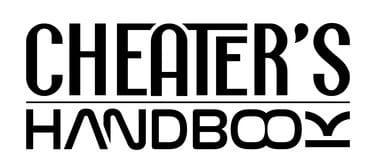Rebound Relationships in Dating: A Healing Tool or Emotional Trap?

Breakups hurt—there’s no sugarcoating it. Whether it was mutual or messy, letting go of someone who was once central to your life leaves a void. And for many, that void gets filled quickly with something new: a rebound. But are rebound relationships in dating a step forward or a slippery slope?
Some say rebounds are lifesavers—helping them regain confidence, rediscover joy, and prove they’re still desirable. Others argue they’re emotional distractions that mask pain without healing it, often dragging another person into a dynamic they didn’t sign up for. The truth? It’s complicated.
Rebound relationships in dating raise tough questions. Are you genuinely ready to open your heart, or just afraid of being alone? Is the person in front of you a romantic prospect—or just a placeholder? And most importantly, how do you ensure no one gets hurt in the process?
In this article, we’ll explore whether rebound relationships can be a healthy bridge to the next chapter—or if they’re just heartache dressed in new clothes. Whether you’re in one, thinking about starting one, or wondering if you’re the rebound, this guide will help you see through the emotional fog.
1. What Is a Rebound Relationship, Really?
At its core, a rebound relationship is one that starts shortly after a breakup—often before the emotional dust has settled. The term “rebound” implies a reactive choice, not necessarily a deliberate one. It’s less about who the new partner is, and more about what they represent: distraction, validation, comfort.
Rebound relationships in dating don’t follow a strict timeline. What defines them is intent. Are you genuinely connecting with someone new, or using them to avoid confronting your grief? Are you falling for them, or just falling away from your past?
Sometimes, rebounds are unintentional. You meet someone, feel a spark, and before you know it, you’re texting them at midnight. You may not be trying to replace your ex—but your heart hasn’t caught up with your habits.
Rebounds also tend to move fast. Emotions run high, boundaries get blurry, and infatuation can feel intoxicating. But without a foundation of healing, the relationship often leans on fantasy instead of reality.
That’s not to say all rebound relationships are doomed. Some evolve into meaningful partnerships. But if you’re dating before you’ve processed the past, it’s worth asking whether your new relationship is built on chemistry—or a coping mechanism.
2. The Case For Rebounds: Emotional First Aid
Let’s be fair—rebound relationships in dating get a bad rap. But they’re not always emotional scams or short-term flings. Sometimes, a rebound serves a legitimate purpose: helping you recalibrate after emotional whiplash.
For starters, they offer connection. After a breakup, loneliness can feel unbearable. Rebounds remind you that you’re still attractive, still lovable, and still capable of forming new bonds. That reassurance can be emotionally grounding.
There’s also value in momentum. Sitting in heartbreak for months can spiral into rumination. A new relationship—while not a cure—can interrupt that pattern and nudge you back toward life. Like emotional triage, it doesn’t fix the wound, but it helps you stop the bleeding.
In some cases, rebounds offer fresh perspective. Being with someone different can illuminate unhealthy dynamics from your past relationship. It may even help you define what you don’t want going forward.
Of course, there’s a caveat: this only works when you’re honest with yourself and your new partner. If both parties understand what the relationship is—and isn’t—it can be a mutually supportive stepping stone.
So yes, rebound relationships in dating can be healing—but only if they’re built on clarity, not delusion. Otherwise, what starts as emotional first aid could become emotional collateral damage.
3. The Dark Side: When Rebounds Become a Trap
Rebound relationships aren’t all healing hugs and ego boosts. Sometimes, they become emotional traps—both for the person rebounding and the person being rebounded on.
Why? Because grief doesn’t disappear just because someone new is in your bed. If you haven’t truly processed your breakup, those unresolved emotions will creep into the new dynamic—through comparisons, emotional distance, or unspoken expectations. It’s like trying to build a house on an old foundation riddled with cracks.
One of the biggest risks in rebound relationships in dating is projection. You may start idealizing your new partner, assigning them traits your ex lacked, or expecting them to “fix” you. That puts enormous pressure on a fledgling relationship—and often leads to disappointment.
Another common issue is emotional unavailability. If you’re still emotionally tethered to your past, you may not be able to fully engage with someone new. This creates a one-sided connection where one person is emotionally invested and the other is emotionally absent.
Then there’s the guilt factor. If the rebound partner eventually realizes they were just filling a void, it can feel incredibly hurtful. And if you wake up and realize you weren’t ready, you’re left with another breakup to process—this time with collateral damage.
Rebounds aren’t inherently wrong. But without emotional honesty and self-awareness, they can do more harm than good. The trap isn’t the relationship itself—it’s pretending it’s something it’s not.
4. Signs You’re the Rebound (Or Using Someone as One)
Rebound relationships in dating can blur lines and cloud judgment—especially if you’re unknowingly playing the role of “emotional crutch.” So how do you know if you’re someone’s rebound—or if you’re using them as one?
First, consider the timing. If your partner just got out of a serious relationship, especially one that ended suddenly or painfully, there’s a good chance emotional baggage is still in the mix. If they talk about their ex constantly—or refuse to talk about them at all—that’s a red flag.
Look for intensity that feels premature. Grand declarations of love, rushed commitments, or sudden talk of exclusivity can mask emotional instability. Rebound relationships often move fast not because they’re fated, but because they’re fuelled by unresolved pain.
On the flip side, ask yourself why you’re dating. Are you genuinely drawn to this person, or are they a distraction? Do you feel emotionally open and present, or numb and disconnected? If you’re honest, the answer often reveals itself.
Being in a rebound isn’t a moral failure—but staying in one that’s hurting someone (including yourself) is. Recognizing the signs early can help you steer the relationship toward honesty, or give you permission to walk away.
5. Rebound vs. Real Deal: Knowing the Difference
Not every post-breakup relationship is a rebound. Sometimes, you really do meet someone amazing shortly after a split. The question is: how do you know if it’s the real deal—or just emotional camouflage?
The main difference lies in emotional motivation. Rebound relationships in dating are often about avoiding feelings; real relationships are built on presence and intention. Are you entering the relationship to escape, or to connect? Are you focused on the person, or just relieved to not be alone?
Time plays a role too. Have you had a chance to process your past? Are you still comparing your new partner to your ex? The more unresolved emotion you carry, the more likely you’re in rebound territory.
Authenticity is another marker. In a rebound, there’s often a performative element—trying to prove something to your ex, your friends, or even yourself. In a real relationship, you show up as you are, not who you’re trying to become.
And finally, look at the emotional balance. Does this relationship feel mutual and grounded, or lopsided and erratic? A real deal builds slowly with trust. A rebound often burns fast, then flickers out.
It’s not about when you meet someone—it’s about why you’re there. That distinction makes all the difference.
6. How to Date Responsibly After a Breakup
If you’ve recently ended a relationship and are considering jumping back into the dating pool, tread carefully—but don’t let fear paralyze you. Rebound relationships in dating aren’t inherently reckless—it’s how you approach them that determines their impact.
Start with honesty—first with yourself. Take time to reflect: Have I grieved? What have I learned? What do I actually want in my next relationship? This emotional clarity is your best insurance policy against unconscious rebound behavior.
Next, be upfront with potential partners. You don’t have to spill your emotional history on the first date, but offering context can build trust. Something as simple as “I just got out of something serious and I’m taking things slow” can go a long way.
Avoid the pressure to “win” the breakup. Social media may tempt you to post new date nights or flaunt your “glow-up,” but these moments should come from a place of genuine connection—not performance.
Also, set boundaries with your ex. Whether you’re co-parenting, dividing assets, or just trying to move on, reducing emotional entanglements can help you start fresh with someone new.
Dating after heartbreak takes courage. But with intention and transparency, it can also be the beginning of something healthy—even if it starts right on the rebound line.
7. Healing Without Hurting Others
There’s nothing wrong with needing connection during healing. But the key to navigating rebound relationships in dating ethically is ensuring you don’t cause unnecessary harm along the way.
The biggest risk isn’t heartbreak—it’s false hope. If you’re dating someone new but still emotionally tethered to your ex, it’s unfair to let your new partner believe they’re building something lasting. Be clear about your emotional availability early on, even if it’s hard.
This doesn’t mean you have to stay single until you’re fully healed. Healing isn’t linear, and connection can play a positive role in that journey. But clarity is non-negotiable. If you’re still figuring things out, say so.
On the other side, if you feel like you’re being emotionally short-changed—treated like a placeholder instead of a partner—trust that feeling. Rebound relationships can become one-sided emotional drains when one person is healing and the other is simply hanging on.
Consent isn’t just about physical intimacy—it’s about emotional truth. Everyone deserves to know what they’re signing up for. If a relationship is born from hurt, it doesn’t have to cause more. With honesty, even a rebound can be kind.
8. Why Intentions Matter in Rebound Relationships
Intentions shape outcomes, especially when it comes to rebound relationships in dating. Two people can walk into the same situation—fresh off breakups, emotionally raw—but their reasons for being there will dictate whether that connection becomes healing or harmful.
If your intent is to distract yourself, numb your pain, or make your ex jealous, that energy will bleed into the relationship. It can lead to emotional confusion, unmet expectations, and an inevitable crash when the emotional high wears off. But if your intent is to stay open, honest, and kind—to yourself and your partner—you can navigate even a rebound responsibly.
Being upfront about where you are emotionally is powerful. It gives both people agency and avoids the kind of miscommunication that turns a short-term spark into long-term damage. You don’t have to declare that you’re “not ready for love”—but you should be clear that you’re still healing.
For those on the receiving end, understanding the other person’s intent helps you decide whether this is a situation you’re emotionally equipped to handle. If you’re looking for commitment and they’re looking for comfort, mismatched intentions will only end in frustration.
In dating, and especially in rebounds, clarity is kindness. Leading with intent—even when the emotions are messy—is how you build trust, avoid pain, and maybe even surprise yourself.
Conclusion: Rebound Relationships in Dating — Painkiller or Path to Growth?
So, are rebound relationships in dating just emotional aspirin, or can they actually lead to something meaningful? The answer depends on self-awareness, timing, and—most importantly—honesty.
When handled with care, rebounds can serve as a stepping stone toward healing. They can reignite your sense of worth, offer clarity about what you want, and gently ease you back into intimacy. But when used as an escape hatch from grief, they can create more confusion, heartbreak, and even damage your future chances of connection.
The key isn’t whether you date after a breakup—it’s how. If you enter with transparency and intention, you give yourself and your partner the best chance at something real. And even if it’s not the one, it doesn’t have to be a mistake. Not every relationship needs to be forever to be worthwhile.
Ultimately, rebound relationships in dating are neither heroes nor villains. They’re just chapters. It’s how you write them—and what you learn from them—that defines their meaning.
My Go-To Platform for Flings, Affairs, and MILFs
Looking for top-notch flings, affairs, or MILFs? Skip the rest, AdultFriendFinder is the gold standard. Zero bots, zero fakes—just real connections. I've scored big in multiple cities. Sign up now, it's FREE!









